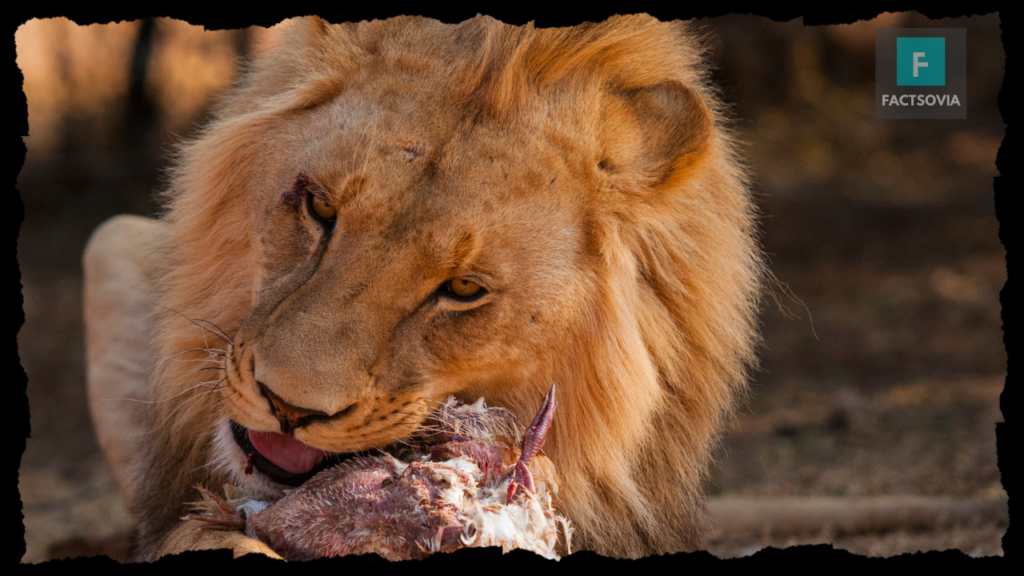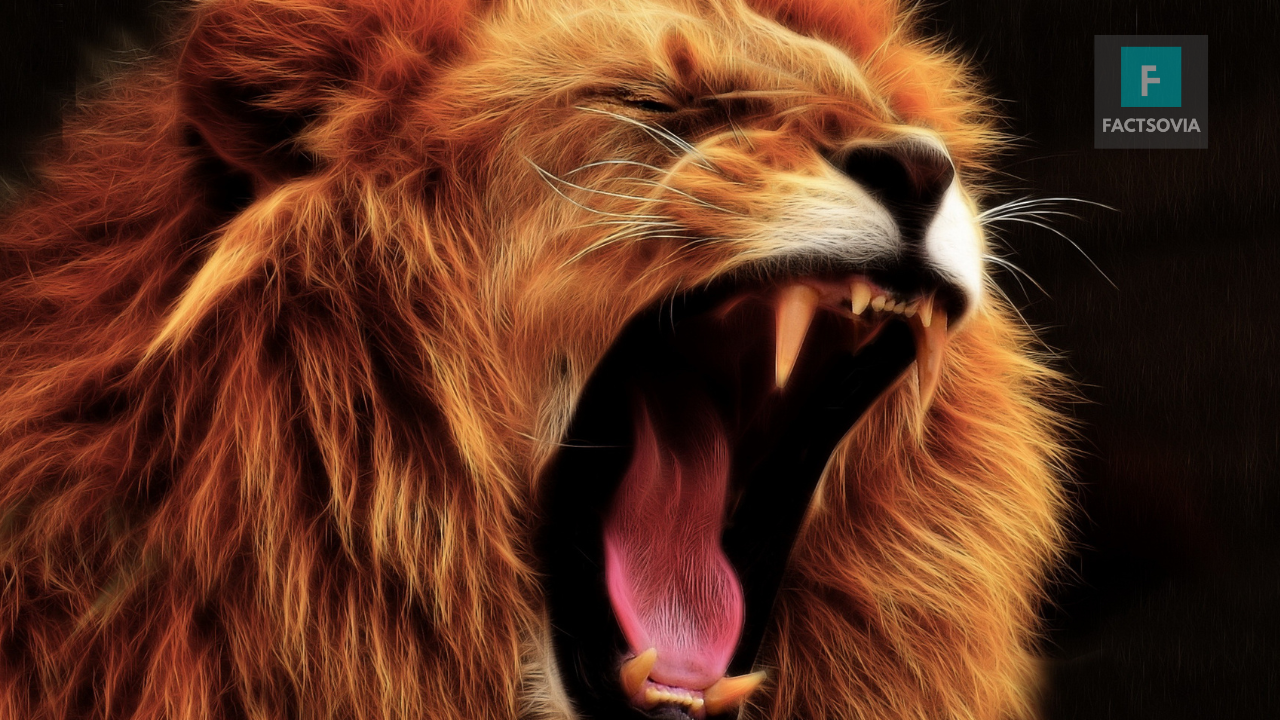We use affiliate links to run our site. When you buy through links on our site, we may earn an affiliate commission, without any added cost to you. Learn more
Lions are majestic and powerful predators that are known for their ferocity and hunting prowess. In the wild, they are often at the top of the food chain, and their diet is an essential aspect of their survival.
In this article, we will explore what lions eat, their feeding habits, and how their diet is influenced by various factors.
A Brief About the Animal
Lions are the second-largest big cat species and are native to Africa and some parts of Asia. They are social animals that live in pride, which consist of up to 30 individuals, including females, cubs, and a few males.
Lions are apex predators and are known for their distinctive manes, which are more prominent in males. They are also excellent hunters and can run up to 50 miles per hour, making them one of the fastest land animals.
General Feeding Habits
Lions are carnivores and are known to consume a wide range of prey, including antelopes, zebras, buffalos, and even crocodiles. However, their diet mainly consists of large herbivores, such as wildebeests and zebras.
They are opportunistic hunters and will take down any prey that they can overpower, including smaller animals like hares and birds. Lions are also scavengers and will often feed on carrion, especially during the dry season when prey is scarce.
Different Species and their Diets
Lions are classified into two distinct species, the African lion and the Asiatic lion. While both species have similar diets, the Asiatic lion’s diet is slightly different due to the availability of prey in their habitat.
African lions consume a wide range of prey, including herbivores like wildebeests, zebras, and buffalos, while the Asiatic lion feeds mainly on deer, antelope, and buffalo.
How They Hunt and Gather Food
Lions are apex predators and hunt in groups to take down large prey. They use their strength and speed to bring down the prey, and their sharp claws and teeth help them kill the prey quickly.
Female lions are primarily responsible for hunting and do so in groups, while male lions usually guard the territory and protect the pride.
When hunting, lions use various hunting techniques, such as stalking, chasing, and ambushing, depending on the prey’s behavior.

Factors Influencing their Diet
Several factors influence a lion’s diet, including the availability of prey, habitat, and competition from other predators.
During the dry season, prey is scarce, forcing lions to change their feeding habits and hunt smaller prey or scavenge for carrion.
The habitat also plays a crucial role in a lion’s diet, as some habitats may have more prey than others, and competition from other predators may limit their options.
The Importance of Their Diet
A lion’s diet is crucial to their survival, as they require a specific balance of nutrients to maintain their health and energy levels.
A lack of food can lead to malnutrition and weakness, making it challenging for them to hunt and defend their territory.
A healthy diet also helps lions grow and develop correctly, allowing them to reproduce and pass on their genes to the next generation.
Human Interaction and Diet
Human activities, such as poaching and habitat destruction, have significantly impacted the lion’s diet and their ability to survive in the wild.
As human populations expand, the lion’s habitat is shrinking, and prey populations are dwindling. This has forced lions to scavenge for food in urban areas, leading to conflicts with humans and domestic animals.
Conclusion:
The diet of a lion is an essential aspect of its survival and is influenced by several factors, including habitat, prey availability, and competition from other predators.
Lions are apex predators that play a crucial role in maintaining the balance and health of their ecosystem, and any disruption in their food chain can have significant consequences.
As human activities continue to impact their habitat and prey populations, it is essential to conserve and protect these magnificent animals and their habitat for generations to come.
Frequently Asked Questions (FAQs):
Do lions eat humans?
Lions typically do not hunt humans as prey. However, there have been instances where lions have attacked and killed humans, usually in cases where they feel threatened or their natural habitat has been encroached upon.
How much food does a lion need per day?
A lion can consume up to 15% of its body weight in food per day, which translates to around 10-25 pounds of meat.
Can lions survive without meat?
No, lions are obligate carnivores and require meat to survive. A diet lacking in meat can lead to malnutrition, weakness, and eventually death.
Do lions eat other predators?
Yes, lions are known to hunt and kill other predators, such as hyenas and leopards, to eliminate competition for resources.
How long can a lion go without food?
A lion can survive without food for up to two weeks, but this can vary depending on their health and the availability of water.
Amazon and the Amazon logo are trademarks of Amazon.com, Inc, or its affiliates.
